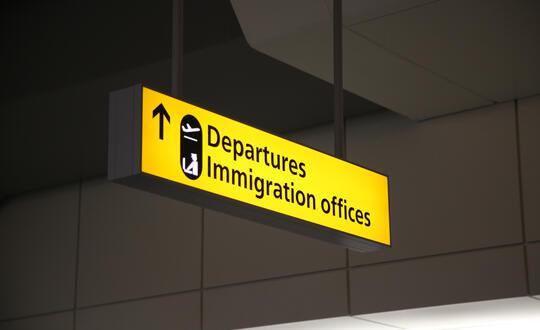
In July 2023, the Government announced its intention to increase the Immigration Health Surcharge (IHS), however an implementation date was not set. Draft regulations now confirm that the IHS is set to increase substantially from 16 January 2024, at the earliest.
Subject to limited exceptions, the IHS, which was first introduced in 2015, is a charge payable by individuals applying for UK visas. Payment of the charge allows individuals to access the National Health Service whilst in the UK, in the same way that UK residents are allowed to access the service free of charge.
The IHS is an upfront cost and is payable in full at the time of submitting a visa application. It is usually levied on visa applications where:
- An individual is applying for permission to enter the UK for six months or more
- An individual is making a visa application from within the UK for any length of time (except for indefinite leave to remain applications).
The IHS fee increase will be as follows:
|
Immigration category |
Current IHS per year (GBP) |
New IHS per year (GBP) |
|
Student, Student dependant, Youth Mobility scheme and applications made by children under 18 on the date of application |
470 |
776 |
|
All other relevant immigration categories |
624 |
1,035 |
The fee uplift represents a huge 66% rise, and will have a significant impact on visa applicants, who need to fund immigration application themselves and/or on sponsors, who may cover or subsidise these fees for their sponsored workers.
John Glen, the Chief Secretary to the Treasury, has explained the Government's decision:
"We plan to increase the rates of the Immigration Health Surcharge, which have been frozen for the past three years, despite high inflation and wider pressures facing the economy and the system in general, to ensure that it covers the full healthcare costs of those who pay it…. That increase to the Surcharge will help to fund the pay rise for doctors."
What should employers and applicants consider and/or do in response to this change?
Looking ahead, employers will need to consider the impact that this fee increase may have on their recruitment budgets and immigration-related costs. Where possible, employers may wish to submit any upcoming applications for leave to enter or remain in UK prior to the change coming into force, in order to avoid the higher charge. Applicants should also consider applying for the maximum immigration permission allowed for their situation, so as to take advantage of the lower rate whilst it is still available.
As a final point, employers should note that a decision not to hire an overseas worker solely due to costs associated with the visa process can potentially amount to unlawful discrimination. Whether saving or avoiding costs can be a legitimate aim in the context of justifying discrimination, has been explored in numerous legal cases and has resulted in the "cost-plus" approach. This approach recognises that whilst cost can be a legitimate aim, it should not be the only legitimate aim. These can be tricky issues to navigate and must be considered on a case-by-case basis, with employers being alive to the potential risks.
If you have any questions regarding the IHS increase or any other aspect of immigration law, our immigration specialists are available to assist you and ensure your business effectively manages its sponsored workforce.




